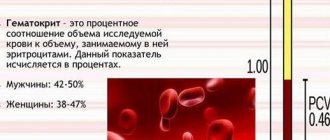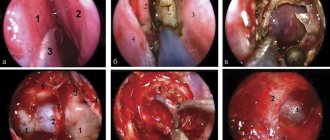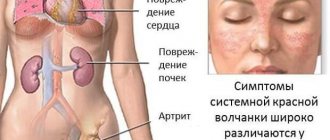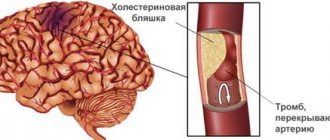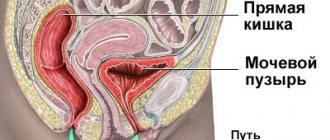What are the dangers of losing weight in a cancer patient?
Cancer patients, regardless of the amount of food they eat and their physical activity, suffer from hypermetabolism (increased energy expenditure).
Lysis or destruction of deposits of sugars, proteins and fats causes a shortage of reserves, weakening the body in the fight against cancer, if this also causes difficulties with food. As a result, anorexia develops with decreased appetite and exhaustion. The following complications appear:
- fatigue (asthenia);
- anemia (decreased red blood cell levels);
- fluid retention and swelling;
- atrophy of muscle structures.
And these are not all the complications that worsen the quality of life of patients, increase inertia and dependence. Changes in appearance are fraught with deterioration of the psychosocial situation, complicate cancer treatment and worsen the prognosis of recovery.
Identifying patients at risk of malnutrition requires knowledge of tumor location, stage, treatment, intercurrent illnesses, and problems that impair nutritional intake. The following symptoms are taken into account:
- lack of appetite;
- fast saturation;
- difficulty swallowing;
- dry mouth and constipation;
- depression and anxiety.
Patients with advanced cancer and no active cancer treatment (palliative care phase) are, regardless of other factors, at high risk of malnutrition. This is observed primarily in cancers of the digestive tract, head, neck, lungs or ovaries.
There is a high risk of digestive problems and loss of appetite during chemotherapy (30-50% chance of symptoms with serious impact on nutrition). Immediate preventive measures are required to prevent toxic events, including vomiting, mucositis, diarrhea, and sensory changes that cause aversion to certain foods.
What types of cancer cause weight loss?
Losing body weight is not the first sign of cancer. This symptom develops in the later stages, when there is no longer any doubt about the progression of the malignant process in the body. In most cases, if a diagnosis has not been made for one reason or another, and the person has suddenly and significantly lost weight, we are talking about metastasis, and not about the initial stages of the development of the disease.
Weight loss for stomach or pancreatic cancer, in which 8 out of 10 patients develop cachexia. When this symptom appears, tumor operability is rare. With a malignant tumor of the lung, severe joint and muscle pain, as well as fever, accompany a sharp weight loss. In this case, weight loss is a secondary symptom.
Anorexia-cachexia syndrome is characterized by 4 symptoms:
- decrease in skeletal muscle mass;
- complete lack of appetite (anorexia);
- quick satiation with a small amount of food;
- constant unreasonable fatigue.
Weight loss within SACOB is typical for cancer of the uterus, prostate and lungs. In patients with malignant tumors of the mammary glands, it occurs in ¾ of cases. In the later stages of progression of the malignant process, anorexia-cachexia syndrome develops in all forms and types of cancer.
When treating malignant tumors, the patient has to lose weight repeatedly. Before surgery, appetite worsens due to stress. After surgery, you cannot eat the way you want. Because you need to adhere to a special diet. In this case, appetite is restored after 3-4 weeks and body weight returns to normal. With bowel cancer, weight loss takes longer, which is associated with a longer rehabilitation period.
A course of chemotherapy is accompanied by the development of adverse reactions such as nausea and vomiting, as well as damage to the mucous membranes of the gastrointestinal tract and oral cavity. During this period, patients have no time to eat at all. Drug-induced anorexia is characterized by severe suppression of appetite.
During radiation therapy for cancer of the mediastinal organs, breast and lung with areas of lymphatic drainage, nausea is also initiated due to damage to the mucous membranes of the esophagus. When exposed to the organs of the genitourinary system, the rectum and intestines are affected, which also leads to a deterioration in appetite. In this case, there is also a need to limit nutrition to reduce the number of bowel movements.
In the situations considered, body weight decreases by no more than 5% of the initial indicators and after the end of therapeutic manipulations, the index tends to increase. The main criterion for cancer cachexia or chemotherapy and radiation therapy is uninterrupted weight gain after completion of the procedures.
Diagnostics
Weight loss for no apparent reason is an indication for consultation with a general practitioner (family doctor or therapist). The specialist conducts a comprehensive examination and excludes the most typical diseases manifested by weight loss. Instrumental examination begins with an assessment of the functioning of the gastrointestinal tract; if other pathological symptoms appear, the nervous and cardiovascular systems are examined, and infections are excluded. The following have the greatest diagnostic value:
- Blood test
. Standard general and biochemical blood tests reveal nonspecific signs of the inflammatory process (leukocytosis, increased C-reactive protein and sialic acids). To exclude gastrointestinal pathology, the levels of the main digestive enzymes are clarified. The concentration of rheumatoid factor is determined. - Hormonal profile
. First, a standard blood test for glucose, free insulin and C-peptide levels is performed to confirm the presence of type 1 diabetes. When weight loss is combined with symptoms of thyrotoxicosis, the amount of T3 and T4 in the blood is measured, the concentration of thyroid-stimulating hormone of the pituitary gland and thyrotropin-releasing hormone of the hypothalamus is assessed. - Ultrasonography
. To confirm or refute the gastroenterological causes of sudden weight loss, an ultrasound of the abdominal cavity is prescribed, during which attention is paid to structural anomalies, defects of the intestinal wall or diffuse changes in the echogenicity of parenchymal organs. Ultrasound of the thyroid gland can exclude hyperthyroidism. - Instrumental visualization
. If pathological signs are detected on ultrasound, endoscopy, colonoscopy or X-ray examination of the digestive tract with oral contrast are recommended. If damage to the pituitary gland is suspected, a targeted radiograph of the sella turcica, MRI or CT scan of the brain is performed. - Additional methods
. In case of pain in the teeth, a consultation with a dentist and x-ray of the jaws are indicated. If weight loss is accompanied by mental disorders, a neurological and psychiatric examination is required. To confirm the infectious cause of weight loss, the results of bacteriological examination of stool and serological reactions are necessary.
How much weight do cancer patients lose?
Losing more than 5% of body weight when no attempt is made to lose weight can be an early sign of cancer. Therefore, unexplained weight loss should not be ignored.
It is unclear what causes cancer wasting syndrome or cancer cachexia. It is assumed that malignant cells replicate exponentially* and consume energy during replication.
*replicate exponentially – increasing over time not only the value, but also the growth rate
How to stop losing weight and gain lost kilograms?
Cancer is one of the biggest threats to human life. In many cancers, sudden weight loss is one of the most dangerous manifestations. And this should be an urgent reason to visit a doctor.
The main problems of most cancer patients are related to the consumption of low amounts of protein and insufficient calories. Eating high-calorie and protein-rich foods is essential to provide energy to help the body fight disease.
Dietary recommendations for cancer:
- good sources of protein include lean meat, fish, poultry, nuts, dairy and/or soy products;
- To gain strength and feel better, patients are advised to take vitamins, minerals, and carbohydrates (fruits, vegetables and whole grains).
Not having enough of these nutrients can cause cancer patients to feel tired, weak, and less able to cope with treatment.
Even if the process of depletion of the body has already gone too far, doctors are faced with the task of maintaining the life of the patient and improving his condition. The measures taken are aimed at eliminating symptoms that negatively affect the supply of nutrients: damage to the mucous membranes, nausea and vomiting. Medicines are also prescribed to relieve pain and improve appetite.
Sudden weight loss: reasons for women after 50
Weight loss in women and men aged 50 to 60 years most likely indicates muscle tissue dystrophy.
Sudden weight loss, reasons for women after 50:
- With age, the concentration of collagen decreases, and there are not enough building proteins for muscle formation. This is why muscle tissue contracts and then dissolves. This is facilitated by a sedentary lifestyle, as well as muscle weakness.
- A person, due to the fact that he feels a lack of energy and muscle pain, tries to strain less. This is one of the main problems, because you need to tense your muscles in order to promote mass gain.
- This usually occurs as a result of injury, osteoarthritis, osteoporosis, rheumatoid arthritis, or diseases associated with damage to certain nerves. The only way to improve the condition of muscle tissue is physical activity and an established diet.
Weight loss
What can you do yourself?
One of the main goals when fighting cancer is weight maintenance, so proper nutrition is of utmost importance. When cachexia develops, it is necessary to increase the total intake of beneficial nutrients.
Regardless of the causes of malnutrition, cancer patients receive therapy to reduce the impact of treatment and side effects. The team of doctors, working closely with the patient, makes every effort to maintain weight in a healthy range. Medicines to treat nausea and vomiting and steroid medications to increase energy may also be prescribed.
However, each patient should take independent steps to maintain a healthy weight and build strength:
- Maintain a balanced diet
. You need to make sure you have enough protein in your diet. Consuming adequate amounts of protein can help maintain body weight. - Increase your calorie intake
. A cancer patient's body uses energy to fight cancer, so it makes sense to get more calories each day. - It is recommended to reduce portions, but increase the number of meals
per day. Instead of three meals a day, you can eat 5-6 times a day. - Increase fluid intake
. To prevent dehydration and increase energy at the same time, you should drink more fluids. These can be juices, broths, cocktails, etc. - Keep a diary
. Helps monitor the patient’s well-being after eating certain foods. It is also recommended to note any new side effects that may develop during treatment. Monitor fluid and medication intake. Clear information about these things will help develop a better strategy to fight cancer. - Include physical activity
. It is enough to take walks in the fresh air every day to activate your metabolism and strengthen your body.
Dietary recommendations for cancer patients are aimed at helping the patient cope with the consequences of the disease and speed up recovery. Dietary therapy helps you get enough calories to maintain a healthy weight, gain strength, and prevent tissue breakdown and infection.
Why does a person lose weight sharply without dieting: reasons
It is especially dangerous for people to lose weight in old age, because it is then that bone and muscle tissue are destroyed.
A person's weight depends on the following factors:
- Calorie content of food
- Physical activity
- Health status
- Age
- Nutrient absorption capacity
Therefore, if a person eats as before and physical activity has not changed, then it is necessary to consult a doctor to find out the cause of weight loss.
Why does a person lose weight sharply without dieting, reasons:
- Malignant neoplasms
- Cancerous tumors in the digestive organs
- Cancer of the colon, stomach or esophagus
- A person can lose weight dramatically due to ulcerative colitis, celiac disease, chronic obstructive pulmonary disease, cholecystitis and kidney failure
What to do if you experience a sudden weight loss
Every fourth patient out of 20 patients with cancer dies from cancer cachexia. If you lose weight, it is recommended to immediately notify your doctor in order to take therapeutic measures aimed at correcting the patient’s condition. Take advantage of the services of oncologists with extensive practical experience who see you at the Medscan clinic in Moscow.
Our medical center uses a special approach to treating cancer patients, which differs from the generally accepted ones. To prevent unintentional weight loss, an early intervention strategy is used and a multidisciplinary approach is practiced. The attending physician works in a team with an oncopsychologist and nutritionist. An integrated approach is aimed at compensating the energy balance and maintaining a high quality of life for the patient.
Reasons for sudden weight loss in women after 40
A sharp weight loss can be caused by depression, a constant feeling of sadness.
Reasons for sudden weight loss in women after 40:
- This usually happens after severe shocks. The mood to do household chores disappears.
- As a result of constant depression, hormonal levels change, changes are observed in the pituitary gland and hypothalamus. The amount of cortisol, which regulates blood pressure, increases.
- Depression affects some of the areas of the brain that regulate hormone production and metabolism. A person’s appetite decreases, which causes a sharp weight loss.
- It is worth noting that men are less likely to suffer from Crohn's disease than women. That is why a sharp weight loss in women from 25 to 45 years old often indicates Crohn's disease. Women are 10 times more likely to develop thyroid disease and rheumatoid arthritis. In addition, women are more likely to suffer from depression than men.



